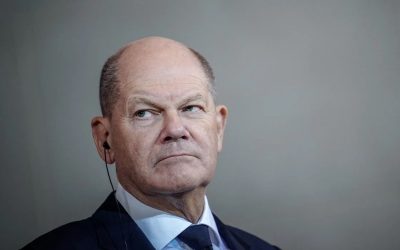European Observatory to Combat Radicalization
Why is UK behind the curve on extremism ?
Thenationalnews – As prime minister, David Cameron was fond of declaring that Britain should be a winner in the global race. In one crucial aspect, however, his premiership saw a giant missed opportunity.Despite broaching the issue in 2015, Britain has failed to identify or deal with the extremism challenge posed by the Muslim Brotherhood. Since that lost moment, the country has fallen steadily behind its European counterparts – and other countries – in tackling the challenge of extremism.
A growing queue of insiders in the security establishment are backsliding from even the current deradicalisation and counterextremism framework. Meanwhile, the rumbling war over Mr Cameron’s 2015 report on the Muslim Brotherhood has broken out again.That the government lacks a grip on the issue is obvious. Without a sense of crisis, there is no sign that the current leadership can shake off the apathy that set in following Mr Cameron’s time in 10 Downing Street.
France has set out a reform programme for its own legal system to curb the influence of radical organisations in society. Austria, Germany and the Netherlands have all adopted a much more rigorous approach to identify groups.Germany has put a stay on official funds going to the organisation Islamic Relief Worldwide. The German domestic intelligence agency, which has a mandate to ensure loyalty to the country’s institutions, has said that senior figures in control of Islamic Relief Worldwide are members of the Muslim Brotherhood.
As the Egyptian ambassador to the UK explained in these pages earlier in the month, there is not enough recognition of a threat in London. A long-running inquiry into Islamic Relief Worldwide by the Charity Commission is going nowhere. Britain is, like Sweden, burying its head and continuing to treat the organisation as an official partner.There are innumerable examples that the group has been able to rehabilitate itself after a period when contacts with officials were minimised.
London’s City Hall, headquarters of the Greater London Authority, has an open door to its community organisers under Sadiq Khan. During her tenure between 2015 and 2020, Melanie Dawes, the top civil servant in the UK’s Ministry of Housing and Local Government, which oversees social cohesion, appeared in the company of its leading lights at functions.
It is counter-productive that the debate in the UK returns to the point when Mr Cameron broke his promise to “drain the swamp”. Thursday was the fifth anniversary of Mr Cameron reading the conclusions of the report on the Muslim Brotherhood to the House of Commons. His interest in getting to grips with the challenge of Islamism dated back to a speech to the Munich Security Conference in 2011.It seemed like an odyssey was moving to fruition but, just as it reached that point, the momentum reversed. And it will not suffice to say that Brexit occurred in 2016 and the moment was lost.
John Jenkins, a co-author of the report, has blamed failures on the pushback and hostility of “experts” in the field who argued the whole project was misunderstood. He points out that none of the government departments have since decided to follow an agreed stance – and he is still calling on the leadership to listen to wake-up calls.Instead, the opposite dynamic has been in motion. Despite the rise of ISIS and the suffering it inflicted, the legions of those who are ready to muddy the waters over the merits of government interventions have grown.
As Mr Jenkins views it, the country’s police leadership consensus is that ideology is a private matter and counterterrorism should be the strict focus of the authorities. In just the past few weeks, there has been a series of interventions calling on government to dial back its efforts.Jonathan Hall, a lawyer who is the government’s adviser on terrorism laws, said that deradicalisation was doomed to fail in most cases. “There is no magic bullet, there is no special pill you can take that deradicalises people,” he said.
Neil Basu, the head of counterterrorism policing, was careful last week to stress that he backs the blue ribbon “Prevent” programme but he revealed doubts elsewhere. Prevent, as the name suggests, is built around surveillance and support to stop people from adopting an extremist outlook.”I don’t know anywhere in the world that thinks they’ve got deradicalisation right – I’m sceptical about whether it works,” he said.A recent police conference was organised to debate changing the terminology related to Islamist extremism. The meeting discussed “faith-claimed” terrorism and mooted terms like “terrorists abusing religious motivations” as alternatives to the more straightforward use of Islamist extremists.
In the end, the Counterterrorism Advisory Network gathering failed to resolve its agonies over language, and the impasse remains.It is not without significance that Ibrahim Munir, the leading figure of the Muslim Brotherhood, lives in London. Nor is the fact that it operates an extensive lobbying and “media-monitoring” network right across the UK.Lorenzo Vidino, an expert in extremism at George Washington University, has written that Britain’s “absence” from the debate is puzzling for its friends.
“The problems that Europeans are tackling also exist in the UK,” he wrote. “Various Islamist groups use their ample resources to spread a divisive message within British Muslim communities but most civil servants lack the tools to counter or even understand the phenomenon.“Britain badly needs to catch up with other European countries in addressing the dangers of Islamism.”




